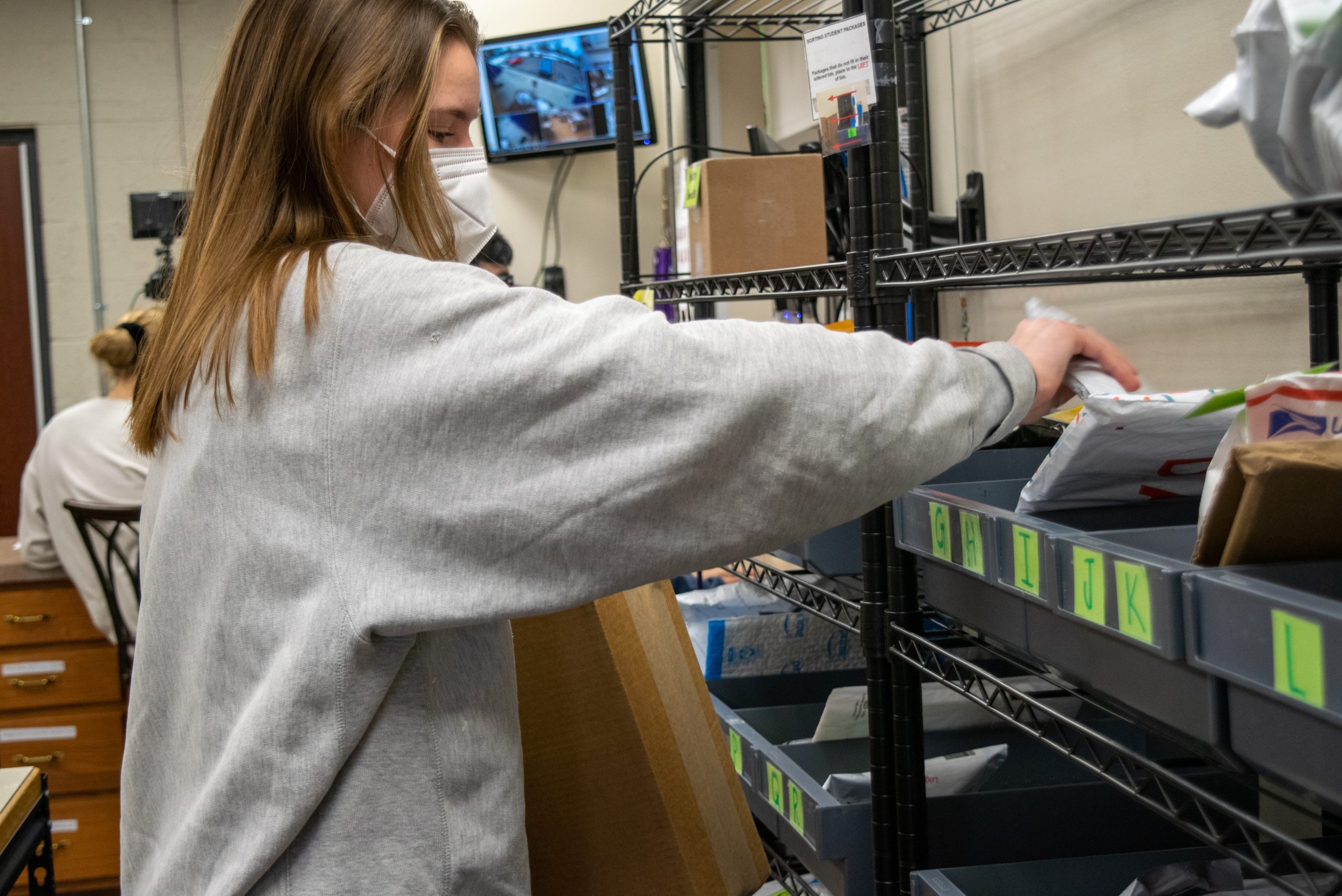With online ordering options becoming easier to use and the pandemic making many people wary of entering stores, online shopping has exploded over the last couple of years — across the U.S. and at Goshen College.
“I do pretty much all of my shopping online,” said Jonathan Weaver, a first-year. “Amazon delivers really quickly and makes my everyday life a lot easier.”Weaver isn’t alone. With packages coming at the click of a button and providing a way to avoid interaction during the pandemic, American e-commerce increased by 32% in 2020 according to Forbes.
In addition to GC students doing more of their shopping from their devices, the transition to a fully online bookstore last fall means students now have no choice but to order their course books in the mail.
The convenience of online commerce has changed the shopping habits of Americans and students at GC. But it comes with unforeseen environmental consequences.
Leah Kauffman, a senior, has worked at ITS Media throughout her four years at GC. She has noticed a “significant increase in the volume of packages” since the pandemic started.
“Our shelves are pretty much always full of packages,” Kauffman said. “As soon as they empty, they’ll be full again next week.”
On top of that, Kauffman noted that “things ordered through Walmart delivery or door dashes have sometimes been dropped at our door, and we’re not able to process those.”
“Online ordering is so easy,” said Cynthia Good Kaufmann, interim director of facilities. But the amount of garbage from the packaging is concerning to her.
One thing Good Kaufmann has noticed is an increase in cardboard in the dumpsters. Much of this cardboard is likely from packages.
“Our highest point in Elkhart County is the landfill,” Good Kaufmann said, “which feels a little depressing to me.”
In 2017, that landfill caught fire, causing air quality concerns and forcing some nearby schools to close. Without an increased focus on recycling and sustainable options, the piling up of trash threatens to have greater adverse impacts on daily life.
Still, Good Kaufmann finds reason for hope. “I’m really excited about students caring about waste management,” she said. “It’s so important for people to care and think about their grandkids a little bit.”



